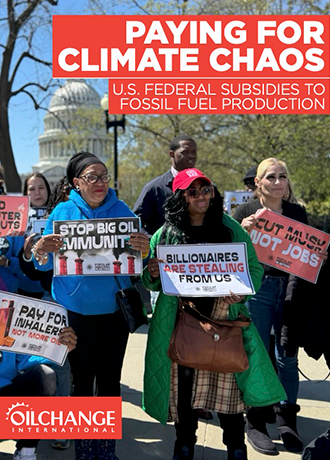
Paying for Climate Chaos: U.S. Federal Subsidies for Fossil Fuel Production
"Paying for Climate Chaos" reveals the staggering scope of federal government subsidies for fossil fuel production.
Oil Change International publishes upwards of 20 reports and briefings every year focused on supporting the movement for a just phase-out of fossil fuels.

"Paying for Climate Chaos" reveals the staggering scope of federal government subsidies for fossil fuel production.

New report prepared with Analyse & Tall, reveals how Norwegian oil policy was discussed on Facebook and Instagram between January 2021 and July 2025 by politicians, parties, government bodies, environmental organizations, and oil companies.
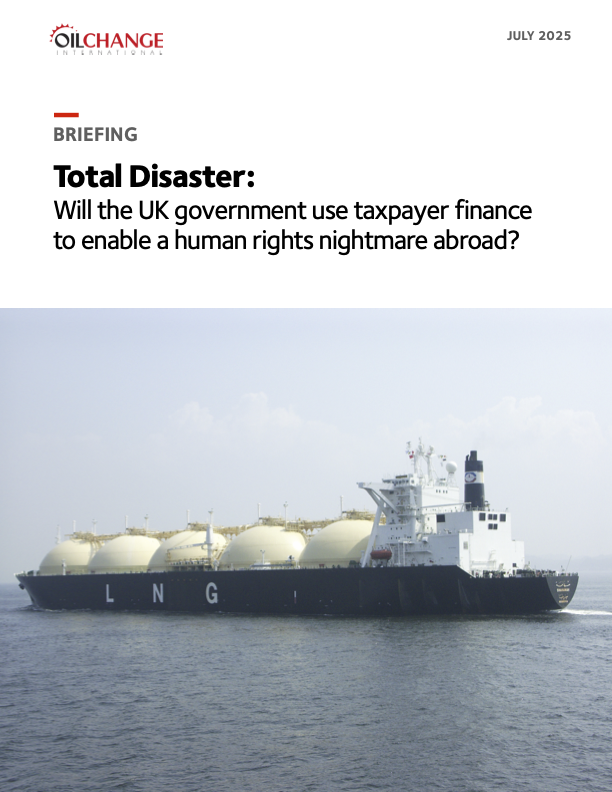
Keir Starmer has inherited a controversial decision from Boris Johnson’s government. The UK Prime Minister must decide whether USD $1.5 billion of UK taxpayer support should be used to enable one of the most controversial infrastructure projects of modern times: The Mozambique Liquefied Natural Gas (LNG) Project.
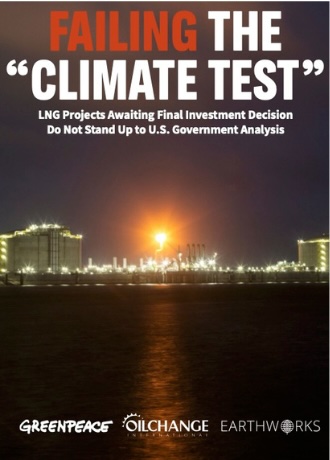
“What we found was crystal clear – any further investment in LNG is not compatible with a livable climate,” says Andres Chang, Senior Research Specialist at Greenpeace USA and lead author of the report."
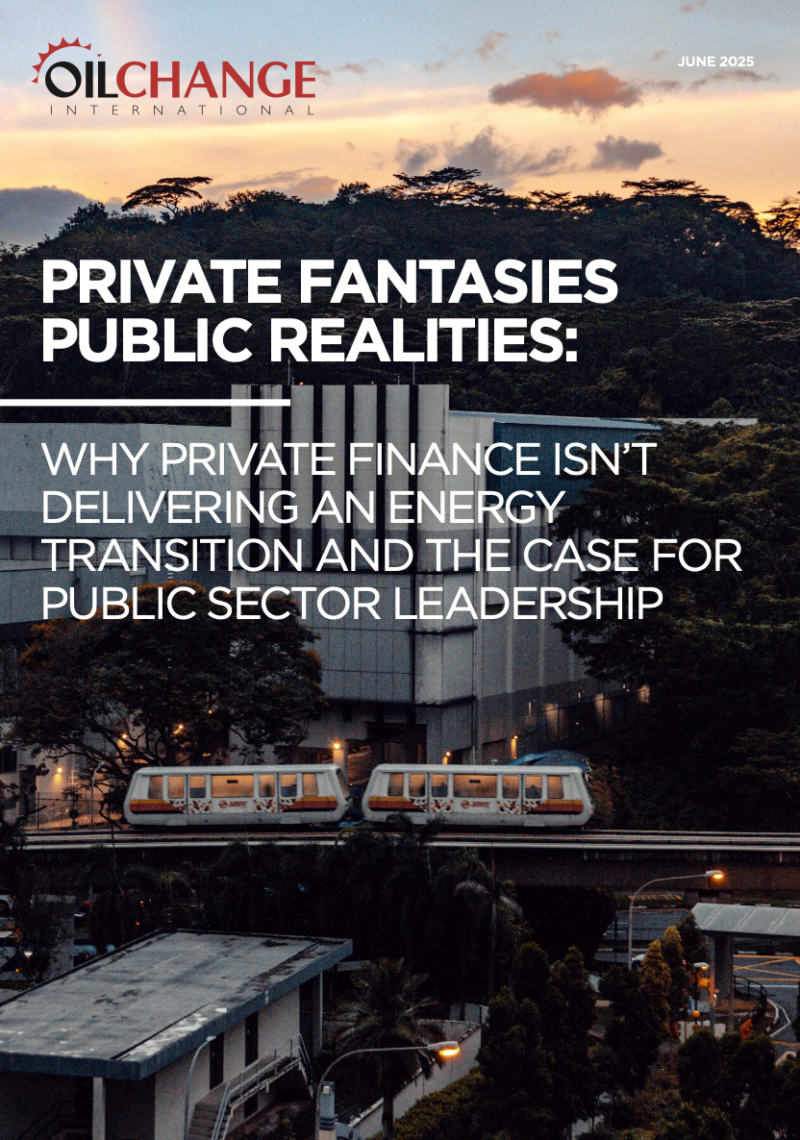
This report details how governments’ dominant “private-sector led” approach to financing a just energy transition is prolonging the fossil fuel era.
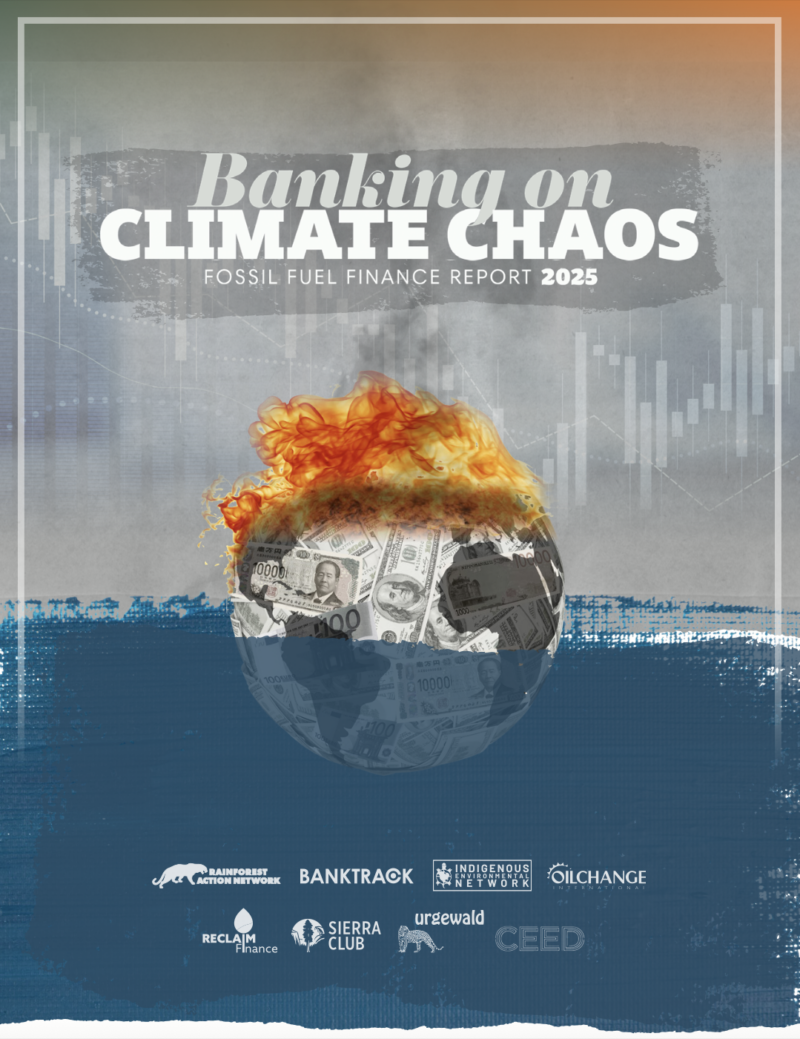
The 16th annual Banking on Climate Chaos (BOCC) report covers the world’s top 65 banks’ lending and underwriting to over 2,700 fossil fuel companies. While the world’s top scientists from the International Energy Agency (IEA) repeatedly state that there is no need for a single new oil field, tanker, pipeline, or any fossil fuel expansion whatsoever, banks ignore climate risk and increase finance for dirty energy companies expanding their sector. This is amidst a rapid retreat from climate commitments many of these banks made at COP26 in Glasgow in 2021.

New report shows that a significant share of the Norwegian population wants emission cuts to happen within Norway and that Labour Party voters are ready for a political shift in oil policy.
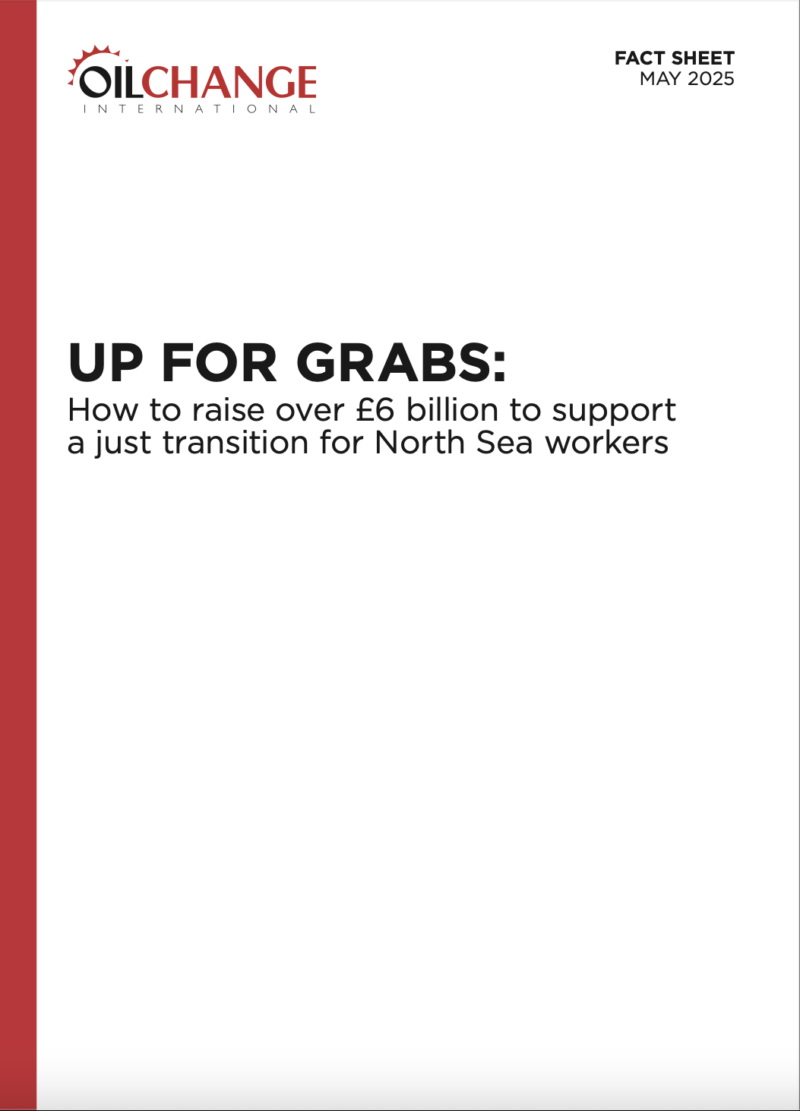
The UP FOR GRABS factsheet shows exactly how the United Kingdom can raise the public funds needed to pay for a fair and orderly transition of North Sea oil and gas workers as part of the green energy transition. The government could mobilise GBP 6.7 billion per year through a series of readily available measures that could fund an emergency package of support for North Sea workers.
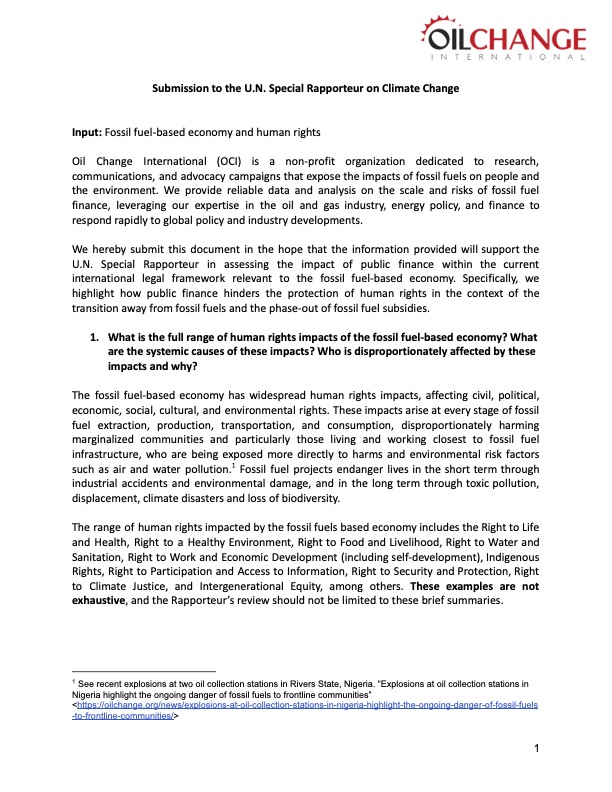
Oil Change International provided input to support the U.N. Special Rapporteur in assessing the impact of public finance within the current international legal framework governing the fossil fuel-based economy.

New report explores the attitudes of Norwegian voters on oil and gas issues before the upcoming September election. The survey reveals that Labour Party voters place a higher priority on reducing Norway’s climate emissions and transitioning away from oil and gas towards renewable energy, compared to the national average.